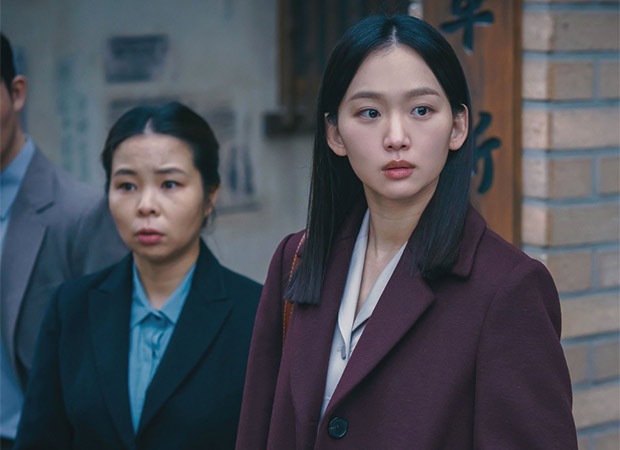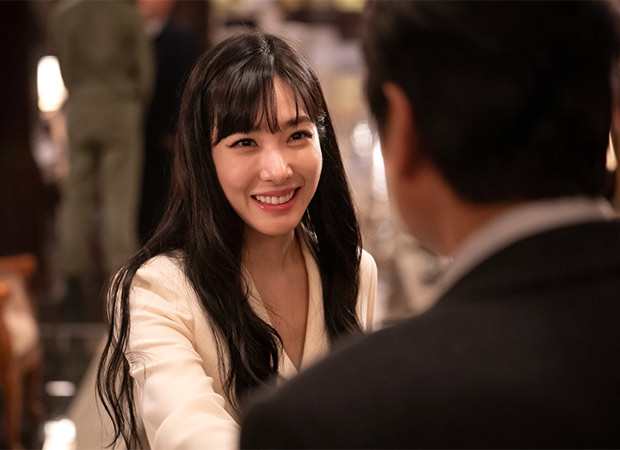Korean history buffs! Remember the divide during the tumultuous 1950s and 60s, when a nation cleaved in two mirrored the clashing ideas within? This politically unstable era, rife with power struggles and self-serving ambition, becomes the captivating backdrop for the latest K-drama, Uncle Samsik. Imagine a historical drama where strategy reigns supreme. Picture political figures locked in a high-stakes poker game, each wielding their strongest cards: mind games, calculated ego strokes, and the ruthless exploitation of vulnerabilities. Uncle Samsik promises to transport viewers to this period, offering a thrilling blend of fictional and non-fictional narratives inspired by the political machinations of yesteryear. This highly anticipated drama marks the K-drama debut of the renowned actor Song Kang Ho, who shares the spotlight with Byun Yo Han in a powerful double lead performance.
Uncle Samsik Review: Song Kang Ho makes K-drama debut as corrupt fixer making unlikely alliance with tough-minded politician Byun Yo Han in tense post-war South Korea
Starring Song Kang Ho in the lead marking his drama debut in 34 years, Uncle Samsik tells the story of a master manipulator and fixer named Park Doo Chil aka Uncle Samsik. Doo Chil received the nickname Samsik after his philosophy of never missing a meal. There is a legend that he made sure everyone had three meals a day even during the war. “When your stomach is full, your heart is open,” is a philosophy of his which he follows staunchly. He has his finger on the ever throbbing pulse of Korean politics. He intends to reform the country and make it a safe haven for the citizens.
The first five episodes of Uncle Samsik premiered on May 15, 2024. In these episodes, we were met with the array of intriguing characters with small or big hold in the ongoing political disarray. The first episode opens with the protagonist Kim San (played by Byun Yo Han) being taken away by the military police to investigate a political matter and Samsik’s involvement throughout. To inform the audience how it all began, we are taken back to 1959 when Uncle Samsik first met Kim San. Uncle Samsik is an ambitious man with an agenda of his own. He is like the nocturnal bat who plays both sides to gain maximum benefit for himself.
The drama unfolds against the backdrop of a turbulent political era in Korea. The authoritarian president, Rhee Seung Min, casts a long shadow, though the narrative centers on the rising opposition party vying for power in the upcoming elections. The road to political victory is often messy, and those with wealth and influence understand the need to keep their hands clean. Enter Uncle Samsik, a character who thrives in the murky waters of political maneuvering. His methods are far from ethical, and his morals are demonstrably compromised. Will Uncle Samsik’s tactics pave the way for the opposition, or will his muddied shoes ultimately stain their campaign? This is the intriguing question the drama poses.

Coming to the ensemble cast led by Song Kang Ho, each member’s story continually develops and grows as the plot thickens. Song, whom most international audiences know from Parasite, showcases a new side to his acting prowess. Song portrays Uncle Samsik, a shrewd individual who hails from the countryside. Shaped by his background, Uncle Samsik operates with a “survival of the fittest” mentality, employing subtle manipulation to achieve his goals. His influence creeps in gradually, making him a formidable and potentially dangerous character as the plot unfolds.
Byun Yo Han as Kim San is quite the convincing character. He is a ‘heart first, mind later’ kind of guy when it comes to his political vision. He has goals and dreams like any other young man of his age. But soon his dreams get a reality check when he finds that the path to achieving his dreams is not as utopian as he had first imagined it to be. He was a government employee before, living on a limited salary and means. Uncle Samsik’s introduction paved a path for Kim San and his family to have full meals and fulfill their dreams.
Jin Ki Joo as Choo Yeo Jin, the daughter of Choo In Tae and Kim San’s girlfriend, is a delight to see on screen. Women in those times had the freedom to work shoulder to shoulder with men, despite the limited scope of availability to scale heights then. She is a tender-hearted woman but possesses a strong will. When it came to doing what was right, she followed her own idea rather than letting Kim San dictate her way.
Lee Kyu Hyung as Kang Seong Min is a character whom we have seen time and again on screen. A man with a weak will and even weaker determination. He lives in a glass palace where he thinks he is safe but lives under constant fear that someone is out there to finish him. He grew up quite misunderstood and his anger found no proper outlet. He resorts to Uncle Samsik’s help but that is not without a heap of suspicion either.
Characters like An Ki Cheol, Jung Han Min, and Ahn Yo Seop represent men driven by ambition. Ahn Yo Seop, likely the eldest, embodies the “old guard” with more traditional views, while the others might be slightly more open-minded. However, a common thread binding them is their relentless pursuit of power. The drama cleverly uses a metaphor to depict the political landscape. Just as one needs to bend a spoon to access the honey, navigating the path to power requires careful maneuvering. It’s a precarious journey, filled with challenges and potential pitfalls, but the allure of ultimate control keeps them fueled.

Speaking of the cinematography and the visual aspect of the drama, the drama presents a quite apt representation of the Korean landscape which was on the brink of modernization and developing its international ties. The architecture, costumes, language and other props transport the viewers to an era most of us have only seen on the big screen.
Each episode is paced at around 45 minutes’ run time. Within this quarter of an hour, the story moves a steady pace and makes for a decent view ability. Some might argue that the drama could move at a faster pace, but I would say for a drama that is set in the old times this speed is apt. The makers use flashback methods to reveal each character’s intent and purpose of action. This works well to add the necessary depth to the story, making it much more emotional.
At its peak, Uncle Samsik masterfully explores the intersection of opportunism and political ideology. Through contrasting scenes, we see San and Doo Sik, near-identical figures with divergent ideologies. San’s eyes hold onto idealism, while Doo Sik’s display a chilling emptiness. However, the show struggles to maintain this artistic brilliance throughout, occasionally resorting to familiar plotlines. Despite strong performances and a well-crafted narrative, Uncle Samsik might face challenges connecting with the audiences. The drama is rich with Korean historical references, including allusions to past presidents and specific events. These might resonate more with viewers familiar with Korean history.
For those willing to delve into Korean history, Uncle Samsik offers a captivating exploration of a complex period. With five episodes currently available on Disney+ Hotstar and new episodes released bi-weekly, the series promises a gripping journey until June 19, 2024.
What are your thoughts on Song Kang Ho-starrer Uncle Samik? Tell us in the comments below!
Watch the trailer:
BOLLYWOOD NEWS – LIVE UPDATES
Catch us for latest Bollywood News, New Bollywood Movies update, Box office collection, New Movies Release , Bollywood News Hindi, Entertainment News, Bollywood Live News Today & Upcoming Movies 2024 and stay updated with latest hindi movies only on Bollywood Hungama.







